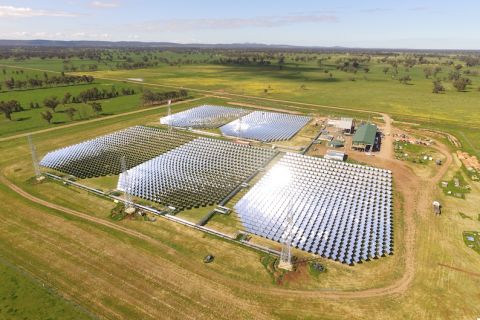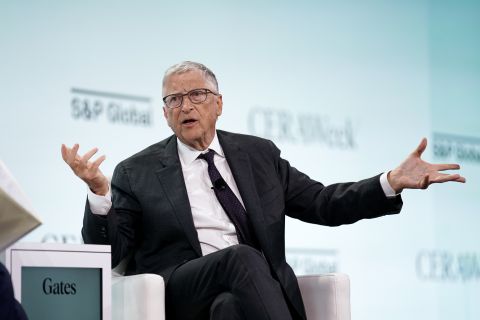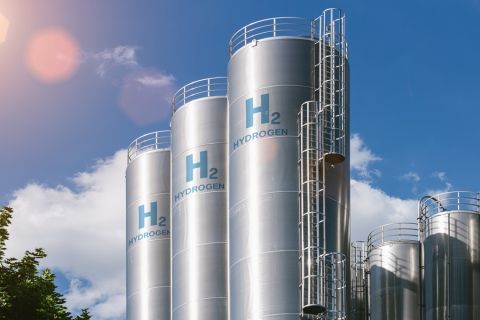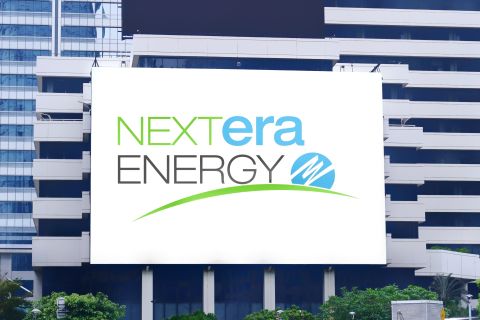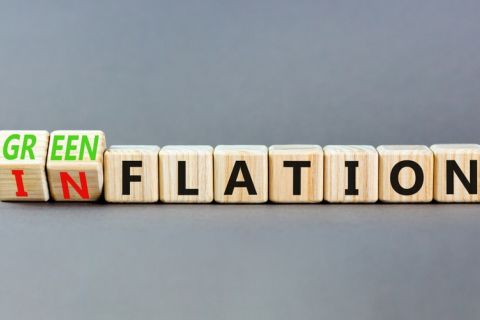The Biden administration will allocate more than $3 billion in infrastructure funding to finance electric vehicle (EV) battery manufacturing, U.S. officials said on May 2.
The funds will be allocated by the Department of Energy from the $1 trillion infrastructure bill President Joe Biden signed last year. Among the initiatives will be processing of minerals for use in large-capacity batteries and recycling those batteries, the agency said in a statement.
Biden wants half of vehicles sold in the U.S. to be electric by 2030, a goal he hopes will boost unionized manufacturing jobs in key election battleground states, thwart Chinese competition in a fast-growing market, and reduce climate-changing carbon emissions.
The administration is also positioning the measures as a step to secure energy independence and cut long-term inflation pressures exacerbated by Russia's Feb. 24 invasion of Ukraine.
"As we face this Putin price hike on oil and gas, it's also important to note that electric vehicles will be cheaper over the long-haul for American families," Mitch Landrieu, the White House infrastructure coordinator, told reporters in a briefing, referring to Russian President Vladimir Putin.
Ford Motor Co. welcomed the announcement.
“This investment will strengthen our domestic battery supply chain, create jobs, and help U.S. manufacturers compete on the global stage,” Steven Croley, Ford's general counsel, said in a statement. "We have a moment of opportunity to own this technology here in the U.S., and investments like the one announced today will help us get there.”
The latest funding will help establish and retrofit battery factories. The infrastructure law also allocated billions more for the government to purchase electric buses and install EV chargers. The administration has been collaborating with manufacturers, including Tesla Inc. Chief Executive Elon Musk, General Motors CEO Mary Barra and Ford CEO Jim Farley.
But the funds will not go toward developing new domestic mines to produce the lithium, nickel, cobalt and other high-demand minerals needed to make those batteries. Some of those projects face local opposition and are tied up in Biden administration environmental and legal reviews.
"These resources are about battery supply chain, which includes producing, recycling critical minerals without new extraction or mining," said Gina McCarthy, Biden's national climate adviser. "So that's why we're all pretty excited about this."
In March, Biden invoked the Cold War-era Defense Production Act to support the production and processing of those minerals. He requested funding to support that initiative last week as part of a $33 billion package on Ukraine-related initiatives.
Recommended Reading
Could Concentrated Solar Power Be an Energy Storage Gamechanger?
2024-03-27 - Vast Energy CEO Craig Wood shares insight on concentrated solar power and its role in energy storage and green fuels.
Bill Gates: ‘A Heroic Effort’ is Beginning, but Climate Goals Still Won’t be Hit
2024-03-26 - Bill Gates said during CERAWeek by S&P Global that the energy transition was picking up speed but still wouldn’t be able to achieve the climate goals established under the Paris Agreement of 2015.
Tangled Up in Blue: Few Developers Take FID on Hydrogen Projects
2024-04-03 - SLB, Linde and Energy Impact Partners discuss hydrogen’s future and the role natural gas will play in producing it.
NextEra Energy Dials Up Solar as Power Demand Grows
2024-04-23 - NextEra’s renewable energy arm added about 2,765 megawatts to its backlog in first-quarter 2024, marking its second-best quarter for renewables — and the best for solar and storage origination.
IEF Chief: When the Public Figures out Transition’s Cost, ‘We’re in Big Trouble’
2024-03-22 - Also, developing and undeveloped countries are pushing back, with one African minister saying “we will decarbonize after we carbonize.”

